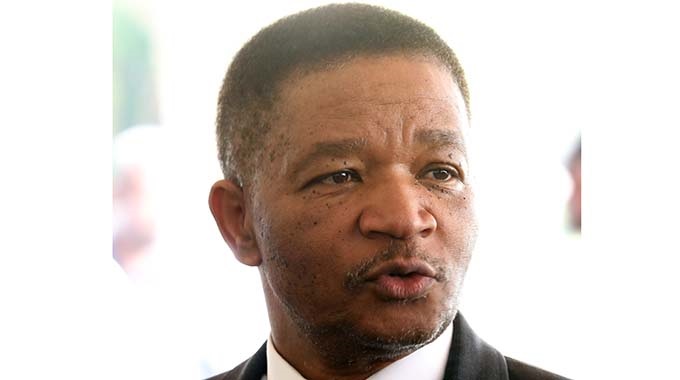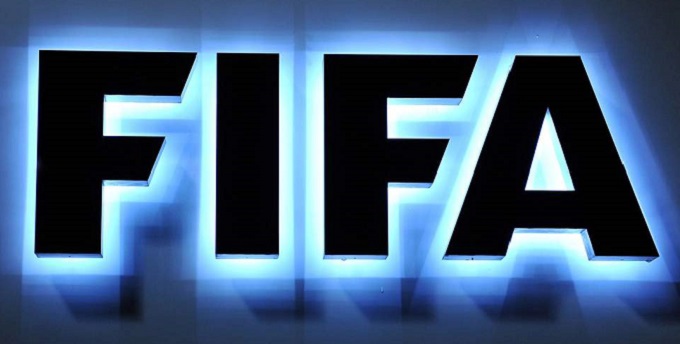True peace, reconciliation and development: Some introspection into Zim’s Unity Accord

Phathisa Nyathi
December 22 every year is celebrated as Unity Day. It was unity which was attained in 1987 following tumultuous and turbulent political events pitting the two liberation movements, PF-Zapu and Zanu-PF.
The day is all the more important now in the context of the New Dispensation when, it is hoped, reconciliation, peace and development are being given a new impetus and, hopefully, enduring social cohesion that the nation so sorely requires.
Lasting reconciliation and peace and subsequently enduring development and social cohesion are possible where truth telling have taken place. Events that demanded efforts to strike unity must be enunciated.
It is within that context that there may be some glimmer of hope that the said unity will be more than some veneer of convenience. What had taken place prior to the signing of the December 22 Unity Accord between Prime Minister Robert Gabriel Mugabe, the Zanu-PF leader and Joshua Mqabuko Nyongolo Nkomo, PF-Zapu leader? Some who do not wish to see a unified and cohesive Zimbabwean society will wonder why all this is necessary. Are we, by revisiting the situation prior to the signing of the Unity Accord, not opening old wounds?
Glossing over festering wounds is engaging in political deception and futility. For the leaders in the Second Republic, the challenge that they face is enormous.
They have to remove the gloss of deception and come face to face with undressed wounds and hope, in the process, to re-engineer a more authentic process in attaining true and genuine unity that is embraced by all and stands to endure into the distant future.
The Unity Accord came as the culmination of a period characterised by political hatred, animosity and killings. The said conditions and events have to be explained.
It could not have been political hostility just for its own sake. Zapu as apolitical party, had been effectively emasculated and enfeebled.
Its political infrastructure had been decisively shattered and devastated. The campaign was accelerated all the more especially during Operation Chinyavada also referred to as Gukurahundi during which Zapu leadership, being accused of sponsoring dissidents, was incarcerated. Some leaders, such as Jini Ntuta, were killed.
The operation was calculated to weaken Zapu towards the 1985 general elections. The strategy failed as Zapu supporters still voted for Zapu.
Cde Nkomo and his lieutenants in Zapu had been fired from Government. Arms caches had been discovered on Zapu and Zipra properties such as Ascot Farm, Nijo Farm, Hampton, Nest Egg and others. Zapu, it was alleged, was plotting a coup against Government. Cde Nkomo had to flee in March 1983 when his life was in extreme danger. One of his security officers had been shot dead at his Pelandaba residence. He temporarily sought refuge in the UK.
Senior Zipra leaders had been arrested and incarcerated in various prisons such as Chikurubi Maximum Security Prison outside Harare. Edward Ndlovu and Welshman Mabhena were among the Zapu leaders that were arrested and incarcerated in various prisons and police stations such Kadoma Police Station. The discovered arms caches led to the arrest of senior Zipra commanders.
Among them were Dumiso Dabengwa, Misheck Velaphi Ncube, Nicholas Nkomo, Tshaka Moyo, Lookout Mafela Masuku and Dr Isaac Nyathi. Despite their acquittal by High Court Judge, Justice Hilary Squires, Dabengwa and Masuku were kept in Chikurubi.
Dissidents had been roaming in some rural areas. These came in different forms. There were some who had genuine political grievances. There were others who were against the ceasefire which put paid to their enriching activities, courtesy of possession of guns.
South Africa, working through white officers in the CIO who had been retained at independence and were then loyal to South Africa, recruited Super Zapu pseudo-dissidents. Some soldiers masqueraded as dissidents and approached villagers to test their response and loyalty to dissidents (See “Dissidents: Creation and Operation in Zimbabwe’s Post-independence Era,” by this writer).
Government property had, in some parts of Matabeleland, notably Tsholotsho, been destroyed by dissidents who, at some opportune time, hid their weapons and fled to Dukwe Refugee Camp in Botswana.
Government then abandoned development projects where dissidents maintained a presence. Economic marginalisation became a reality when various economic projects were not completed even beyond the Unity Accord.
Within the army, former Zipra members faced persecution and segregation which forced some to either desert or demobilise. Some of them left for South Africa and Botswana while others headed towards their rural homes where they became targets for Gukurahundi who had their names gleaned from demobilisation records and then eventually passed on to 5 Brigade. Dukwe Refugee Camp in Botswana received some who were to remain there till the signing of the Unity Accord and declaration of amnesty.
The Unity Accord thus came against the backdrop of events narrated above. It is important to appreciate why there was political hostility. Prime Minister Robert Mugabe was obsessed beyond measure with the establishment of a one party state in Zimbabwe, with him as life President or Prime Minister. It was a political objective which was pursued through a military onslaught.
The political campaign thus sought to destroy Zapu and, in the process, pave way for the establishment of a de facto one party state.
It is the enduring legacy of the tumultuous time that we now turn to so that the New Dispensation is guided on ways to attain lasting reconciliation, peace and social cohesion. The one important legacy is poisoned ethnic relations.
The First Republic may be credited with engendering, sustaining and nurturing ethnic hatred and animosity in Zimbabwe. While the intention in unleashing Gukurahundi was to chase after and destroy dissidents, at operational level its thrust became unmistakably ethnic in character.
Relatives of victims and survivors alike saw the campaign as a Shona versus the Ndebele campaign. This perception has endured.
The leadership, not just the political one, has the onerous task of dealing decisively with these enduring realities and perceptions which continue to threaten unity within the nation state.
Economic marginalisation is yet another lasting legacy that requires affirmative action in order to bring about equitable development. We cannot run away from the fact that there was some sidelining of Matabeleland and Midlands provinces.
It is within the capacity of Government to deal with these issues so that true unity, a sine qua non for sustained social, economic, cultural and political development, is achieved and genuinely celebrated by all.
I have argued elsewhere that much more than economic marginalisation, the greatest loss within affected areas was depletion of leadership.
Communities require cultivation and development of leadership around which communities rally as they initiate and execute sustained development projects.
Critical egos, self-confidence and self-esteem were shattered and the New Dispensation needs to design programmes that will seek to regenerate and invigorate development-oriented leadership which will guide communities beyond whatever affirmative action by way of development government would have instituted.
A Commission was set up to investigate Gukurahundi and also the Entumbane clashes. A heavy lid was placed on the pot of findings. This is certainly not in the interests of Zimbabweans, for both current and future generations.
Fortunately, a precedent has been set. The Motlanthe Commission on the unfortunate fatal riots of August 1, has had its results taken into the public domain. It would be an additional feather in the cap of President Emmerson Mnangagwa to lift the burdensome lid as part of efforts to heal the nation. It is better late than never. It is possible, I have always maintained, to heal this nation and celebrate true reconciliation, unity, peace and development. No price is too high to pay for a healed nation.
There is the Grand Plan, that obnoxious piece of document that appeared for the first time in 1979 on the eve of independence. No document is more evil in poisoning ethnic relations in Zimbabwe.
The document should not be left unattended to as it is doing untold damage to ethnic rapprochement. No one seems to publicly take ownership and denounce the document for all it is- a debilitating document that waters the weeds of ethnic hostility.
We write as we do, not to cause alarm and despondency. Rather, we do so out of a strong desire to heal this nation. The golden opportunity is now and let the New Dispensation strike while the iron is still hot. Let us, moving forward, enjoy true reconciliation, peace, unity and development. Together we can make it. All that is needed is commitment, dedication, selflessness and genuine engagement.








Comments